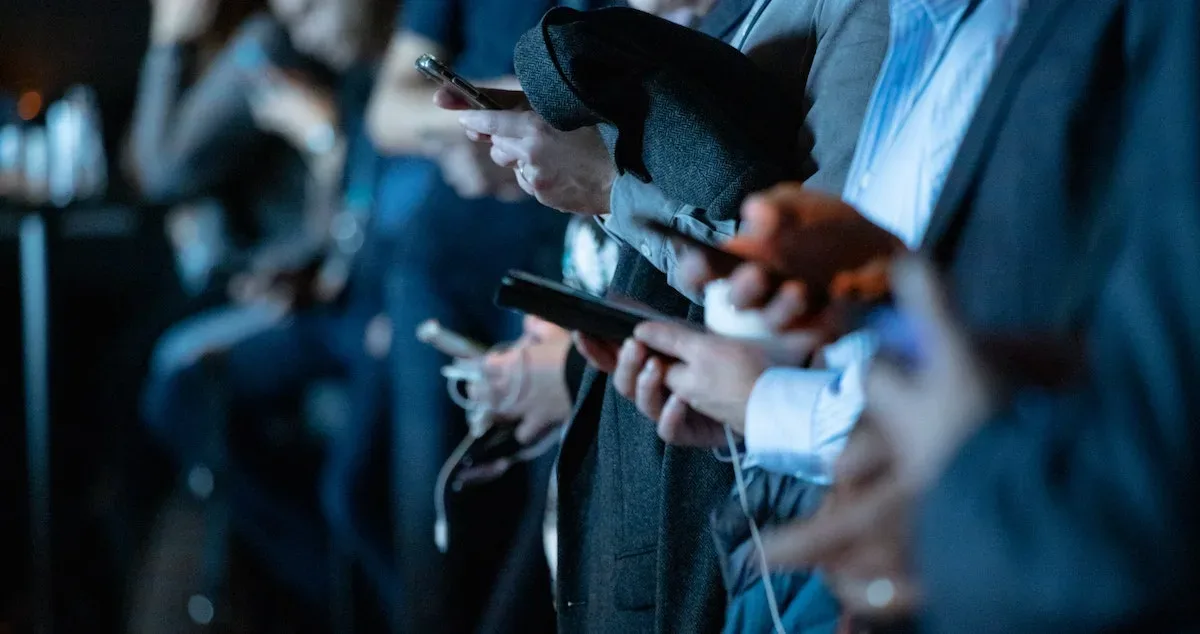Social media has become a major part of our daily lives, especially for teenagers. It is a platform where they can connect with friends, share experiences, and express themselves. However, social media can also have negative effects on the mental health of young people. The pressure to fit in and constantly compare themselves to others can lead to feelings of insecurity and low self-esteem. In this article, we will explore ways in which teenage girls can develop a positive relationship with social media.
Set Limits
One of the most important steps in developing a positive relationship with social media is to set limits. This means setting aside time each day to use social media, and avoiding it outside of these designated times. This will help reduce the amount of time spent comparing themselves to others and will allow them to focus on other activities.
Be Mindful of What They Share
Teenage girls should be mindful of what they share on social media. They should avoid sharing anything that could be harmful or hurtful to others. They should also be aware of the impact that their words and actions may have on their online reputation.
Focus on Positive Content
Social media can be overwhelming, and it can be easy to get caught up in negative content. To combat this, teenage girls should make an effort to focus on positive content. They can do this by following accounts that inspire and motivate them, or by sharing uplifting and motivational quotes and images.

Connect with Real Life Friends
Social media can be a great way to connect with friends, but it is important to remember that real-life relationships are just as important. Teenage girls should make an effort to spend time with friends in person and to engage in activities that do not involve social media.
Be Authentic
Finally, it is important for teenage girls to be authentic on social media. They should not try to be someone they are not in order to fit in or impress others. Authenticity is key to building a positive relationship with social media, and it will help them to feel more confident and secure in who they are.
The Negative Effects of Social Media on Teenagers
Social media has become an integral part of our daily lives, especially for teenagers. It provides a platform for them to connect with friends, share experiences, and express themselves. However, social media can also have negative effects on the mental health of young people. Here are some of the most common negative effects of social media on teenagers:
Increased Anxiety and Depression
Social media can be a source of constant comparisons and negative thoughts. Teenagers may feel pressure to fit in, to look a certain way, or to have a certain number of followers. This can lead to increased anxiety and depression, as they feel like they are not good enough.
Decreased Self-Esteem
Social media can be a breeding ground for negativity and cyberbullying. Teenagers may receive hurtful comments or be excluded from online groups, leading to decreased self-esteem and feelings of insecurity.
Addiction
Social media can be addictive, and many teenagers find it difficult to put down their phones. They may spend hours scrolling through their feeds, which can have a negative impact on their mental health and their ability to focus on other activities.
Disconnect from Reality
Social media can also lead to a disconnect from reality. Teenagers may become so focused on their online lives that they neglect their real-life relationships and experiences. This can lead to feelings of loneliness and isolation.
Decreased Attention Span
Finally, social media can have a negative impact on a teenager’s attention span. The constant stimulation and short bursts of information can make it difficult for them to focus on longer tasks or to retain information.
In conclusion, social media can have negative effects on the mental health of teenagers. It is important for parents, teachers, and other adults to help young people develop a positive relationship with social media, so that they can use it in a way that is healthy and beneficial for their mental health.

The Positive Effects of Social Media on Teenagers
Despite the potential negative effects, social media can also have positive effects on teenagers. Here are some of the most common positive effects of social media on teenagers:
Improved Communication and Connections
Social media provides a platform for teenagers to communicate with friends and family, regardless of physical distance. It can also help them connect with others who share similar interests, leading to a sense of community and belonging.
Increased Creativity and Self-Expression
Social media can be a creative outlet for teenagers, allowing them to express themselves through images, videos, and written posts. This can be a great way for them to showcase their talents and interests and to receive positive feedback from others.
Improved Access to Information
Social media provides access to a wealth of information and resources. Teenagers can use it to research topics, to stay informed about current events, and to learn about new ideas and perspectives.
Increased Access to Opportunities
Social media can also provide teenagers with access to new opportunities. They can use it to connect with potential employers, to find volunteer opportunities, and to learn about events and activities in their community.
Improved Mental Health
Finally, social media can have a positive impact on a teenager’s mental health. By connecting with others and expressing themselves, they can feel more connected and confident in who they are.
In conclusion, social media can have positive effects on teenagers. By using it in a responsible and positive way, they can reap the benefits and develop a healthy relationship with social media. It is important for parents, teachers, and other adults to encourage teenagers to use social media in a positive way, while also helping them to recognize and address any potential negative effects.
Should I monitor my child’s social media activities
That is a personal decision, but here are some points that might help you make your decision:
- Age and Maturity: The age and maturity of your child will play a major role in whether or not you should monitor their social media activities. For younger children, it may be necessary to monitor their use more closely, as they may be more vulnerable to online predators or cyberbullying. For older teenagers, you may need to give them more privacy and independence, while still checking in periodically.
- Trust: Trust is a key factor in any parent-child relationship, and the same applies to social media. If you have a strong, trusting relationship with your child, you may not need to monitor their social media activities as closely. However, if you have concerns about their online behaviour or if there is a history of trust issues, you may need to be more involved.
- Safety: The safety of your child should always be your top priority. Monitoring their social media activities can help ensure that they are not exposing themselves to any potential dangers or risks online.
- Open Communication: Encouraging open communication with your child about their social media use is also important. By talking to them about their experiences and helping them to understand the potential risks and benefits, you can help them develop a healthy relationship with social media.
Ultimately, the decision to monitor your child’s social media activities is a personal one that should be based on your individual circumstances and relationship with your child. It is important to strike a balance between privacy and safety, and to approach the issue with an open mind and a willingness to listen and learn from your child.
How can I help my child learn to manage her social media activities
Here are some tips to help your child learn to manage their social media activities:
- Set Limits: Encourage your child to set limits on their social media use, such as a specific amount of time per day or not using it before bedtime. This will help them develop healthy habits and avoid becoming addicted to social media.
- Encourage Positive Content: Help your child focus on positive content by encouraging them to follow accounts that inspire and motivate them, or by sharing uplifting and motivational quotes and images.
- Teach Digital Citizenship: Teach your child about digital citizenship and the importance of treating others online with kindness and respect. This will help them understand the impact their words and actions can have on others.
- Foster Real-Life Relationships: Encourage your child to spend time with friends in person and engage in activities that do not involve social media. This will help them develop strong real-life relationships and avoid becoming overly dependent on social media.
- Open Communication: Encourage open communication with your child about their social media use. Ask them about their experiences and listen to their thoughts and feelings. This will help you understand their perspective and provide you with an opportunity to offer guidance and support.
- Model Positive Behaviour: Finally, lead by example. Show your child how to use social media in a positive and responsible way. Avoid using social media as a way to compare yourself to others or to engage in negative online behaviour.
By following these tips, you can help your child develop a healthy relationship with social media and learn to manage their social media activities in a responsible and positive way.
In conclusion, social media can be a powerful tool for teenage girls, but it is important that they develop a positive relationship with it. By setting limits, being mindful of what they share, focusing on positive content, connecting with real-life friends, and being authentic, teenage girls can use social media in a way that is healthy and beneficial for their mental health.

